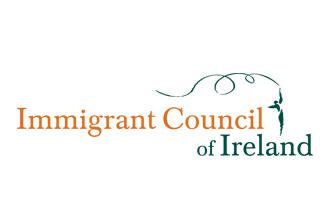Racism is a 'fact of life' for migrants - ICI

A new report by the Immigrant Council of Ireland details the racist violence and harassment endured on a daily basis by migrants. By Eadaoin O'Sullivan.
Racism is an everyday fact of life for migrants in Ireland, and we must do more to challenge those who engage in racist behaviour in public settings. That’s according to the Immigrant Council of Ireland (ICI), which today (4 October) launched a report titled ‘Taking Racism Seriously: Migrants’ Experiences of Violence, Harassment and Anti-Social Behaviour in the Dublin Area’.
The report’s findings are based on case studies from incidents reported to the ICI’s Racist Incidents Support and Referral Service and interviews with participants who took part in focus groups specifically for the publication. They show that migrants experience high levels of racism in the workplace, on the streets and in their own neighbourhoods. Many of those who participated in the focus groups were naturalised Irish citizens. The vast majority had experience of racist incidents, varying from long-term harassment and violent assault to anti-social behaviour that resulted in victims having to flee their homes.
Incidence of racism in Ireland
A 2009 survey undertaken by Gallup on behalf of the European Union Agency for Fundamental Rights (FRA) found that 73% of black African respondents in Ireland believed that discrimination based on ethnicity or immigration status was widespread in the country. A second EU-Midis report found that 76% of black respondents in Ireland did not report their experiences of discrimination to the relevant authorities. A 2005 ESRI study found that 18.7% of black Africans described being treated badly or receiving a poor service from healthcare services on at least one occasion (compared to 9.2% of Asian respondents and 15% of non-EU European respondents). However, of those who received substandard treatment, most (82.5%) did not make a complaint.
The report emphasises this under-reporting of racist incidents in Ireland, and suggests that at least one of the reasons for it is a fear that making a report to gardaí may have a negative impact upon citizenship or long-term residence applications. The Department of Justice and Equality performs a background check in reviewing such applications, and individuals who have come to the negative attention of gardaí receive a negative decision on their application. Research recently published by the ICI has shown that occasionally coming to the attention of gardaí, even in reporting a crime, can result in a negative decision. While these incidents are rare, they have resulted in a reluctance of some victims to notify gardaí of racist incidents – something confirmed to the ICI during interviews for this study.
Says Denise Charlton, Chief Executive of the ICI: “This report illustrates very starkly the price being paid for our lack of consistent, effective and strong action against racism. We’re all guilty of turning a blind eye to racist incidents: think of how many times we have seen kids – or, indeed, adults – on a bus or the Luas taunting a driver or a ticket-inspector, and said nothing.”
One of the report’s more striking findings is that those interviewed perceived racism as being more prevalent in Ireland than elsewhere. Says Charlton, “Some of those we spoke with have lived in the UK, Holland and Sweden, but said they never felt as unsafe as they do in Ireland.”
According to one interviewee:
“I get abused in Ireland almost everyday – that doesn’t happen in Germany. For example, if I’m driving the car in Lucan or Blanchardstown and if I stop at the lights, someone walking by will shout ‘black bastard’. This happens every second day… Not a month has gone by since I’ve come to Ireland when I haven’t heard abuse." – Adam*
Said another:
“It happens so often, I get used to it. It’s part of my job now. I’m used to the verbal abuse. People stand beside me and talk through the glass that we’re stealing their jobs.” – Oliver
Effects of recession
A number of interviewees told the ICI that they had experienced deep hostility when they first came to Ireland a decade ago but that such hostility had abated over time. However, they considered that the incidence of racist verbal abuse had risen again since the start of the economic crisis.
“It’s like when we came [first]. Now we are going through it all over again for the past two years, since the start of the recession.” – Annabelle
In response to the findings of the report, the ICI is calling for the introduction of guidelines covering the sentencing of racially motivated crimes.
“‘Racially aggravated offences’ is a concept that does not hold weight under Irish law,” says Charlton. “While the Gardaí acknowledge and record racially motivated offences, the Irish criminal justice system makes no distinction between offences deemed to have such motivations and other offences covered by the same legislation. In this context, there may be little motivation to focus on racism in the investigation of offences as doing so is unlikely to affect the outcome of a prosecution.
“Consideration must be given to adopting the concept of racially aggravated crime in respect of sentencing. Such a move would send out a powerful signal that racism is being taken seriously.”
* Pseudonyms are used throughout the report and the names of areas in which incidents took place have been changed to preserve anonymity and confidentiality.
